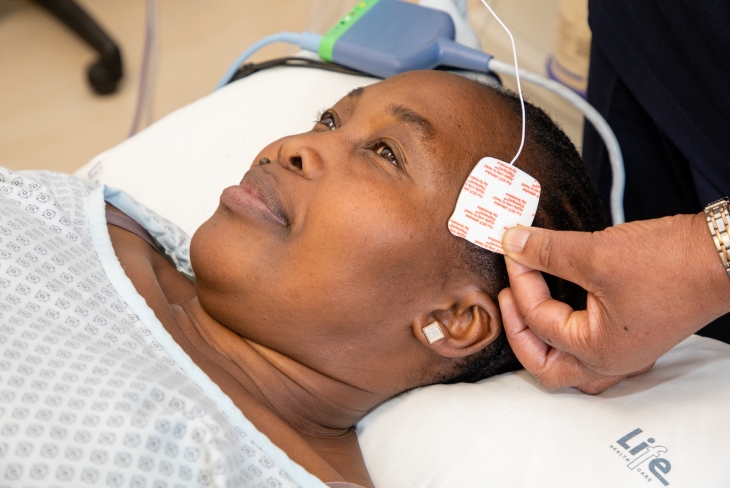Electroconvulsive Therapy (ECT)

The effectiveness of Electroconvulsive Therapy (ECT) in treating Bipolar Mood Disorder and other mental illnesses
Medicine and the advancement of technology has come a long way over the past decade, however, even in the modern age, treatment options do not adequately address the complex challenges of mental illness, which accounts for roughly one-third of adult disability globally1.
It is estimated that over 4 million South Africans suffer from Bipolar Mood Disorder2, a mental illness that remains heavily stigmatised across all areas of society and often carries with it many offensive labels. World Bipolar Day (30 March) aims to raise awareness and break this stigma by inspiring a global shift in thinking that will eliminate social stigma and promote a culture of acceptance3.
Introduced in the 1930’s4 and long considered a taboo subject of psychiatry, Electroconvulsive Therapy, also known as ECT or electroshock therapy, has many myths associated with it that conjures up images of patients strapped to beds shuddering uncontrollably and writhing in pain. Fast forward 90 years, ECT has become an effective short-term treatment with the support of advanced technology that is used to treat severe manic or depressive episodes associated with Bipolar Mood Disorder and psychosis (difficulties in determining what is real and what is not). Psychosis also occurs in persons diagnosed with Schizophrenia and Schizoaffective Disorder or other mental illness that has risk factors such as suicide.
Advancements in technology have done away with what was once considered a controversial and unregulated treatment option. Since the early and mid-80s, ECT has become a clinically proven and effective treatment that is minimally invasive and pain free with few side-effects requiring as little as 6 treatment sessions in a course. ECT is now considered a fast response treatment option, reducing the severity of manic, depressive or psychotic symptoms after the first or second treatment. Clinical data and patient experience show that there is progressive improvement of symptoms within the first week of ECT being administered, and complete remission has been achieved within 3 to 4 weeks (with success rates in up to 75% of cases)5. After a course of ECT, some patients will continue to have maintenance ECT, while others will return to or continue psychiatric medications to maintain their mental health on a long-term basis.
ECT entails a small, yet specific dose of electrical stimulation that is delivered to the brain under general anaesthesia administered by an anaesthetist that causes increased levels of nerve cell activity in the patient’s brain. ECT is administered by a clinician who has undergone specialised training in ECT. The patient's breathing, temperature, heart functioning, and blood pressure is monitored during the procedure. The doctor will also monitor for the desired presence of seizure activity in the brain using an electroencephalogram (EEG), since seizure activity is not always physically visible.
As with most medical treatments, ECT has very few side effects. The most common of these include a headache and a brief period of confusion immediately after the procedure. Patients may experience temporary loss of short-term memory whilst undergoing the treatment, which usually resolves anywhere within a few days or weeks.
ECT is a cost-effective treatment option. In South Africa, Bipolar Mood Disorder is listed as one of 27 Chronic Disease List (CDL) conditions that qualifies for state-enforced Prescribed Minimum Benefits (PMBs). This means that medical aid schemes may cover the ECT treatment costs. Medical aid patients needing ECT should check their benefit options and speak to their medical scheme to determine how many ECT sessions they are covered for.
Education is key to destigmatise mental health disorders, such as Bipolar Mood Disorder and to explore non-medicated treatment options such as ECT that are tried, tested and backed by modern technology.
Life Healthcare has 9 dedicated facilities in four provinces providing private psychiatric services and acute mental healthcare. Find out more about ECT or any of the other therapies and treatments offered at Life Mental Health.
The information is shared on condition that readers will make their own determination, including seeking advice from a healthcare professional. E&OE. Life Healthcare Group Ltd does not accept any responsibility for any loss or damage suffered by the reader as a result of the information provided.

